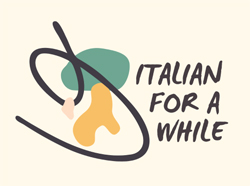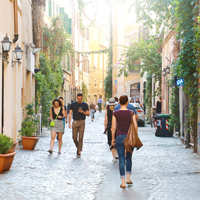Moving to Viareggio, Italy
Last updated on Aug 07, 2024
Summary: Moving to Viareggio, Italy? Expats talk about what you need to know before moving to Viareggio.
What do I need to know before moving to Viareggio?
When we asked people what advice they would give someone preparing to move to Viareggio, they said:
"Viareggio is a beautiful coastal city in the region of Tuscany, known for its beaches, carnival, and seafood. Before moving to Viareggio, expats should know that the official language is Italian, and while English is spoken in many tourist areas, it's beneficial to learn some basic Italian phrases. The cost of living in Viareggio is generally lower than in larger Italian cities like Rome or Milan, but it's still higher than in many other countries. Housing can be expensive, especially near the beach, but there are more affordable options in the city's outskirts. The city has a Mediterranean climate with hot summers and mild winters, so it's important to prepare for this type of weather. Viareggio is famous for its annual carnival, which is one of the biggest and most important carnivals in Italy, so be prepared for large crowds and festivities during this time. The healthcare system in Italy is generally good, but it's recommended to have comprehensive health insurance. Public transportation in Viareggio is reliable, with a network of buses and trains connecting the city to other parts of Italy. The cuisine in Viareggio is heavily based on seafood, given its location on the coast. The city is also in the Tuscany region, which is known for its wine, so wine lovers will feel right at home. It's also important to note that Italy has a slower pace of life compared to many other countries, and this is true in Viareggio as well. Shops may close in the afternoon for a few hours, and many businesses are closed on Sundays. Finally, it's important to understand the Italian culture and customs before moving to Viareggio. Italians value family, food, and fashion, and they are known for their warm hospitality. However, they also appreciate respect for their traditions and customs, so it's important to familiarize yourself with these before your move," commented one expat who made the move to Viareggio.
How do I find a place to live in Viareggio?
We asked expats how they chose their neighborhood and found a place to live. They answered:
"Finding a place to live in Viareggio, involves several steps. First, you need to determine your budget and the type of accommodation you're looking for. This could range from a small apartment to a large villa, depending on your needs and financial capabilities. Next, you should research the different neighborhoods in Viareggio to find one that suits your lifestyle and preferences. Some areas might be closer to the beach, while others might be near the city center with easy access to shops and restaurants. Once you have a clear idea of what you're looking for, you can start your search. There are several online platforms that list properties for rent or sale in Viareggio, such as Immobiliare.it, Casa.it, and Idealista. These websites allow you to filter your search based on various criteria like price, size, location, and type of property. In addition to online platforms, you can also contact local real estate agencies. They can provide you with more personalized assistance and might have access to properties that are not listed online. Some well-known real estate agencies in Viareggio include Tecnocasa and Gabetti. When you find a property that you're interested in, arrange a viewing with the landlord or real estate agent. This will give you a chance to inspect the property and ask any questions you might have. If you're not in Italy, you might be able to arrange a virtual viewing. If you decide to proceed with a property, you'll need to negotiate the terms of the lease or purchase agreement. This will include things like the price, the duration of the lease, and any conditions or responsibilities. It's advisable to get legal advice during this process to ensure that your interests are protected. Finally, once the agreement is signed, you'll need to arrange for utilities and services like electricity, water, and internet. You might also need to register your new address with the local authorities. Remember, finding a place to live in a foreign country can be challenging, so it's important to be patient and thorough in your search," said one expat who made the move to Viareggio.

Become ‘Italian for a While’ with IFA! Learn in Italy on a 1-week to 12-month program - open to students, young adults, graduates, digital nomads, professionals, groups, faculty-led programs, and more. Take courses at an accredited school while immersing yourself in the language, life, and culture among your international peers. Submit an inquiry with IFA to learn more.
Click connect to have our partner contact you via e-mail and/or phone.

Become ‘Italian for a While’ with IFA! Learn in Italy on a 1-week to 12-month program - open to students, young adults, graduates, digital nomads, professionals, groups, faculty-led programs, and more. Take courses at an accredited school while immersing yourself in the language, life, and culture among your international peers. Submit an inquiry with IFA to learn more.
Click connect to have our partner contact you via e-mail and/or phone.
What is a typical expat home or apartment like in Viareggio?
"A typical expat home or apartment in Viareggio, is often located in the city center or near the beach, offering stunning views of the Tyrrhenian Sea. These homes usually have a traditional Italian design, with terracotta floors, wooden beams, and large windows that let in plenty of natural light. The apartments are often spacious, with one or two bedrooms, a living room, a fully equipped kitchen, and one or two bathrooms. Some homes may also have a small balcony or terrace, perfect for enjoying the warm Italian weather. The buildings themselves often have a charming, old-world feel, with stone exteriors and lush gardens. Despite their traditional appearance, many of these homes are equipped with modern amenities, such as air conditioning, Wi-Fi, and modern appliances. Many expats choose to live in gated communities or buildings with a doorman for added security. The proximity to local markets, restaurants, and shops makes daily life convenient and enjoyable," said one expat who made the move to Viareggio.
What is the average cost of housing in Viareggio?
If you are thinking about moving to Viareggio, cost of living in probably a key consideration. Expats commented about the cost of housing:
"The average cost of housing in Viareggio can vary greatly depending on the location and size of the property. For instance, a small apartment in the city center may cost around €200,000 to €300,000. Larger, more luxurious villas located near the beach can cost upwards of €1 million. Rental prices also vary, with monthly costs ranging from €500 for a small apartment to over €1,000 for larger properties. Please note that these are estimated prices and actual costs may vary," remarked one expat who made the move to Viareggio.
Should I buy or rent a home in Viareggio?
If you have not spent a lot of time in Viareggio, you should rent before even thinking about buying. We asked expats there about the buy vs. rent decision:
"The decision to buy or rent a home in Viareggio, largely depends on your personal circumstances, financial situation, and long-term plans. If you plan to stay in Viareggio for a long period, buying a home could be a good investment. Owning a property allows you to build equity over time and gives you a sense of stability and permanence. On the other hand, if you're not sure about your long-term plans or if your job requires you to move frequently, renting might be a better option. Renting offers more flexibility and less financial commitment. It also saves you from the responsibilities of property maintenance and other costs associated with homeownership. It's also important to consider the real estate market conditions in Viareggio. If the market is favorable for buyers and you have the financial capacity, buying a home could be a wise decision. However, if property prices are high and you're not ready for the financial commitment, renting might be more practical. Lastly, consider your lifestyle and personal preferences. Some people prefer the freedom and flexibility of renting, while others value the stability and potential financial benefits of owning a home. It's crucial to weigh these factors carefully before making a decision," commented one expat who made the move to Viareggio.
What should I pack when moving to Viareggio?
We asked people living in Viareggio to list three things they wish they had brought and three they wish they had left behind. They responded:
"When moving to Viareggio, you should pack a variety of clothing suitable for a Mediterranean climate, including lightweight clothing for the warm summers and heavier, layered clothing for the cooler winters. Don't forget to pack a good quality raincoat and umbrella, as Viareggio can experience heavy rainfall, especially in autumn and winter. Pack comfortable walking shoes for exploring the city and beach footwear for the sandy beaches. A swimsuit is a must for enjoying the beautiful Tuscan coast. Bring your essential toiletries, but remember that you can also buy many items locally. If you have prescription medications, bring enough to last until you can arrange a local supply. Pack important documents such as your passport, driver's license, medical records, and any necessary visas or work permits. If you're planning to cook, you might want to bring some specialty kitchen utensils that may not be readily available in Italy. Remember to bring electronic devices like your laptop, smartphone, and their chargers. An adapter plug for Italian sockets would also be useful. Lastly, bring personal items that will make your new place feel like home, such as photos, favorite books, or small keepsakes," replied a member in Viareggio.
 Italian For A While
Italian For A WhileConnect
Become ‘Italian for a While’ with IFA! Learn in Italy on a 1-week to 12-month program - open to students, young adults, graduates, digital nomads, professionals, groups, faculty-led programs, and more. Take courses at an accredited school while immersing yourself in the language, life, and culture among your international peers. Submit an inquiry with IFA to learn more.
Click connect to have our partner contact you via e-mail and/or phone.
 Italian For A While
Italian For A WhileBecome ‘Italian for a While’ with IFA! Learn in Italy on a 1-week to 12-month program - open to students, young adults, graduates, digital nomads, professionals, groups, faculty-led programs, and more. Take courses at an accredited school while immersing yourself in the language, life, and culture among your international peers. Submit an inquiry with IFA to learn more.
Connect
Click connect to have our partner contact you via e-mail and/or phone.
What cultural faux pas should I try to avoid making in Viareggio?
We asked people in Viareggio if they could share any humorous cultural blunders they commited. For new expats, keep in mind that these incidents are an inevitable part of expat life. Learning to laugh about them is the key!:
"When visiting Viareggio, it's important to respect the local customs and traditions to avoid any cultural faux pas. Firstly, Italians value their dress code and appearance, so try to dress appropriately, especially when visiting religious sites. Wearing revealing clothes in churches or other religious places is considered disrespectful. Secondly, punctuality is not as strictly observed in Italy as it might be in other cultures. However, it's still important to be on time for formal occasions or business meetings. Thirdly, Italians are known for their love of food and dining is a social event. Avoid eating on the go or rushing through meals. Also, remember that cappuccino is typically a morning drink in Italy, and ordering it after a meal or in the afternoon might be seen as unusual. Fourthly, tipping is not mandatory in Italy, but it's appreciated. If you're satisfied with the service, leaving a small tip is a nice gesture. Lastly, Italians are generally warm and expressive people. Don't be surprised by close personal contact or animated conversations. However, it's important to respect personal space and boundaries. Remember, when in doubt, observe the locals and follow their lead," said one expat in Viareggio.
About the Author
 Betsy Burlingame is the Founder and President of Expat Exchange and is one of the Founders of Digital Nomad Exchange. She launched Expat Exchange in 1997 as her Master's thesis project at NYU. Prior to Expat Exchange, Betsy worked at AT&T in International
and Mass Market Marketing. She graduated from Ohio Wesleyan University
with a BA in International Business and German.
Betsy Burlingame is the Founder and President of Expat Exchange and is one of the Founders of Digital Nomad Exchange. She launched Expat Exchange in 1997 as her Master's thesis project at NYU. Prior to Expat Exchange, Betsy worked at AT&T in International
and Mass Market Marketing. She graduated from Ohio Wesleyan University
with a BA in International Business and German.
Some of Betsy's articles include 12 Best Places to Live in Portugal, 7 Best Places to Live in Panama and 12 Things to Know Before Moving to the Dominican Republic. Betsy loves to travel and spend time with her family. Connect with Betsy on LinkedIn.

 Viareggio, Italy
Viareggio, Italy

